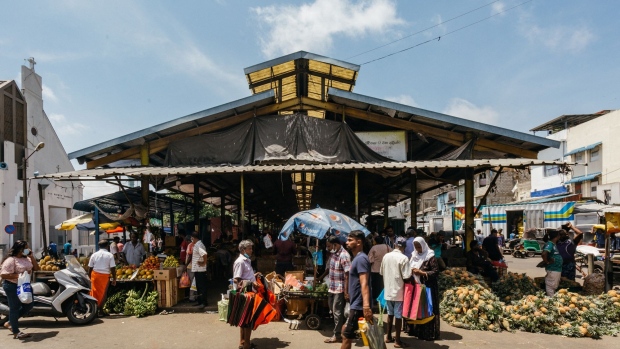Oct 10, 2022
Emerging Markets Already in Crisis Situation, Deutsche Bank Says in Report
, Bloomberg News

(Bloomberg) -- Emerging markets are already in crisis situation and rising interest rates together with weakening currencies could push more governments into default, Deutsche Bank AG said in a report.
The sources of risk for low and middle-income countries includes the withdrawal of fiscal stimulus in advanced economies and the depreciation of their currencies against the dollar as US and euro region yields rise, which could lead to higher costs of servicing external debt. That’s an issue because, in all regions, external debt relative to exports is at the highest in about 20 years, according to the report, published Monday.
“It is reasonable to say that a crisis has already arrived,” the analysts led by Chief Economist Michael Spencer wrote in the report. “While most of the stress so far has been in frontier markets, the pressure has been broad-based and felt in both offshore and local currency markets.”
The US Federal Reserve and European Central Bank are expected to increase rates for another six months, pressuring emerging market currencies and bond yields. At best, those currencies will depreciate relative to the dollar for a “a few more quarters.” At worst, local borrowing costs will reach “the highest levels in many years just as weaker currencies make servicing debts prohibitively expensive,” the analysts wrote.
Think 2022 is Bad? Wait for 2023. Global Forecast Book
The distress could spread from frontier markets to other asset classes that dominates investors portfolios, they said. The highest debt burden levels are in Asian emerging markets and Latin American countries which have, on average, less external resilience than their counterparts.
On top of Sri Lanka, another 14 countries have seen their access to international credit “virtually shut off,” according to the report.
©2022 Bloomberg L.P.





